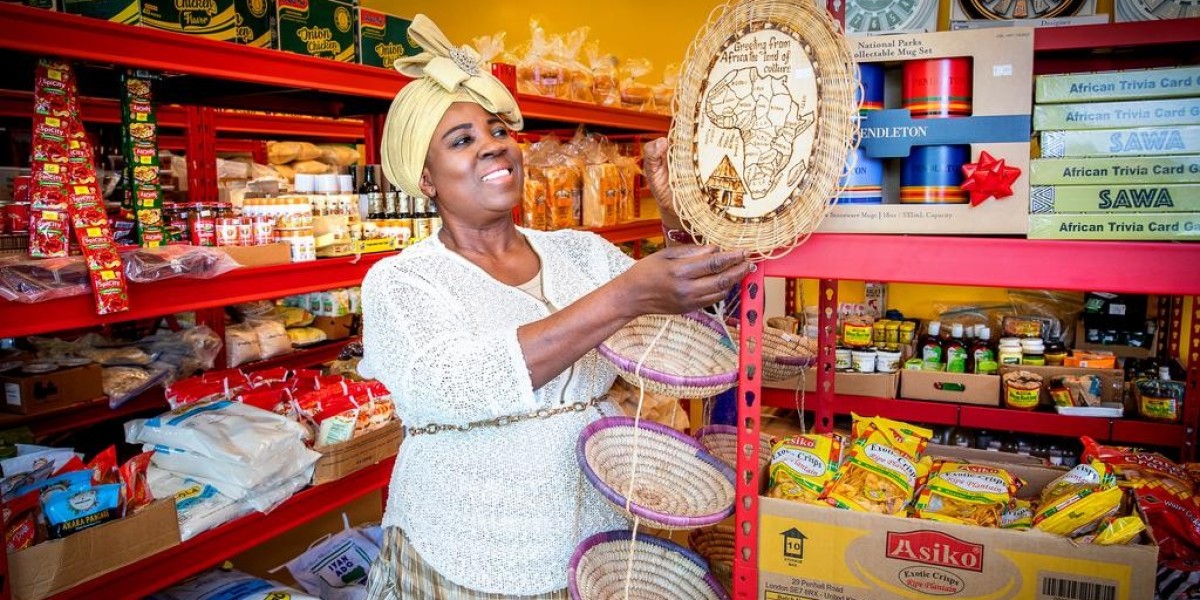Introduction:
African grocery refers to food products that are native to Africa, often not readily available in mainstream grocery stores. These products include grains, spices, sauces, and other food items that are essential to the African diet. African grocery stores and online platforms are increasing in popularity, offering people the opportunity to experience African flavors in their homes. In this article, we will explore the world of African grocery, its importance, popular stores, types of grocery available, health benefits, and challenges.
Popular African Grocery Stores:
There are a growing number of African grocery stores and online platforms worldwide, catering to the needs of Africans in the diaspora, and non-Africans who enjoy African cuisine. African grocery stores can be found in major cities worldwide, and some popular online stores include African Food Mart, Le Monde, and Tunde Wey's Blackness in America.
Types of African Grocery:
African grocery items can be classified into different categories based on their use in African cuisine. These include grains and cereals, spices and seasonings, sauces and condiments, beverages, and snacks and treats.
Grains and Cereals:
African cuisine is heavily reliant on grains such as millet, sorghum, maize, and rice, which are used to make staple dishes like fufu, banku, and jollof rice.
Seasonings & Spices:
Spices and seasonings from Africa, such as ginger, garlic, chilli peppers, and coriander, are renowned for their strong flavours. Stews, soups, and marinades benefit from the depth and complexity these spices bring to the table.
Spreads & Sauces:
African condiments and sauces provide food distinct flavours and textures. These include, to name a few, peanut sauce, tomato sauce, and hot sauce.
African drinks come in a variety of teas, coffees, and concoctions produced with organic components including hibiscus flowers, baobab fruit, and tamarind.
Treats and Snacks:
Various baked foods, sweets, and salty snacks like plantain chips and biltong are examples of African snacks and treats.
African Groceries' Health Benefits African groceries provide a variety of health advantages, including medicinal and nutritional value.
nutritive worth:
Numerous grains and cereals from Africa are rich in nutrients and serve as a healthy source of fibre, protein, and vital vitamins and minerals. Okra, baobab fruit, and watermelon are examples of African fruits and vegetables that are high in vitamins and antioxidants.
Therapeutic Value:
The therapeutic benefits of African herbs and spices are well known, and they are frequently employed in traditional African medicine to treat a variety of illnesses. For instance, ginger can help with digestion and contains anti-inflammatory qualities.
Obstacles in African Grocery:
Despite the popularity of African supermarkets and online shopping sites expanding, the sector still faces many obstacles.
African grocery accessibility Sorry for the preceding message's omission; now for the article's conclusion:
It is challenging for consumers to access African groceries because they are not as accessible as common grocery stores. For people who reside in locations without a sizable African community or in areas without African food stores, this presents a special challenge.
Affordability:
Due to costs associated with importation and delivery, African grocery items can cost more than conventional supermarket items. This limits some people's access to African food by making it harder for them to afford African supermarket goods.
Conclusion:
In conclusion, African groceries is a valuable addition to any meal since it gives a wide variety of flavours and health advantages. African grocery stores and online marketplaces continue to gain popularity despite the industry's difficulties, giving people the chance to enjoy the diverse flavours of African food in the comfort of their own homes.
FAQs
African grocery - what is it?
African grocery refers to food items that are indigenous to Africa and are frequently hard to find in traditional grocery stores.
Where can I find groceries from Africa?
You can purchase groceries from African markets or online retailers with a focus on African groceries.
What are some well-known food stores in Africa?
Le Monde, Tunde Wey's Blackness in America, and African Food Mart are a few well-known grocery businesses serving the African community.
What kinds of groceries are offered from Africa?
Grains and cereals, spices and seasonings, sauces and condiments, beverages, and snacks and treats are all examples of African grocery items.
What are some of the health advantages of African food?
African foods provide therapeutic and nutritional worth in addition to other advantages for health. African herbs and spices are prized for their therapeutic capabilities, while African grains and cereals are nutrient-dense.








